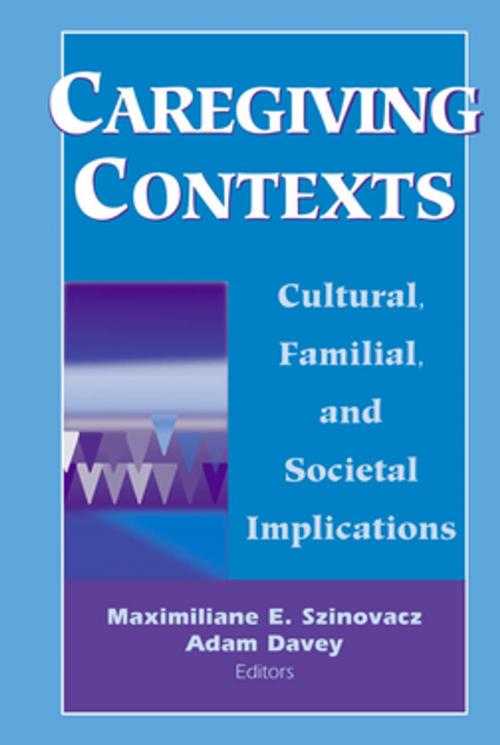Caregiving Contexts
Cultural, Familial, and Societal Implications
Nonfiction, Health & Well Being, Medical, Specialties, Geriatrics, Patient Care, Caregiving, Nursing, Home & Community Care| Author: | ISBN: | 9780826103109 | |
| Publisher: | Springer Publishing Company | Publication: | August 13, 2007 |
| Imprint: | Springer Publishing Company | Language: | English |
| Author: | |
| ISBN: | 9780826103109 |
| Publisher: | Springer Publishing Company |
| Publication: | August 13, 2007 |
| Imprint: | Springer Publishing Company |
| Language: | English |
"This volume represents a major step forward in the literature by placing its focus squarely on the caregiving context, its dimensions and how it shapes the process and outcomes of family care. The chapters locate care within the family, rather than a single individual....The family, in turn, in embedded within a larger cultural, community, and social context....These explorations of context will give us a broader view of how caregiving occurs. It will help us improve our theories about care and about the family's role in contemporary society....Care of our elders is an enduring and yet evolving part of life. The focus on context will help us understand, support and learn from the ways that families meet the challenges involved."--from the foreword by Steve H. Zarit, PhD, Professor and Head, Department of Human Development and Family Studies, Pennsylvania State University
Here, in Caregiving Contexts, the editors and their chapter authors explore the ways in which demographic change will influence the availability of caregivers and how divergent welfare and ideological systems will affect care among family members and between family and formal care systems. They also discuss the differences in experience between spousal and adult child caregivers, special circumstances such as child or adolescent caregivers, and government and workplace policies that are available to support caregivers in the United States and in some European countries.
No other volume is available on caregiving which explores the sociocultural, familial, and sociopolitical contexts that effect both care decisions and outcomes.
"This volume represents a major step forward in the literature by placing its focus squarely on the caregiving context, its dimensions and how it shapes the process and outcomes of family care. The chapters locate care within the family, rather than a single individual....The family, in turn, in embedded within a larger cultural, community, and social context....These explorations of context will give us a broader view of how caregiving occurs. It will help us improve our theories about care and about the family's role in contemporary society....Care of our elders is an enduring and yet evolving part of life. The focus on context will help us understand, support and learn from the ways that families meet the challenges involved."--from the foreword by Steve H. Zarit, PhD, Professor and Head, Department of Human Development and Family Studies, Pennsylvania State University
Here, in Caregiving Contexts, the editors and their chapter authors explore the ways in which demographic change will influence the availability of caregivers and how divergent welfare and ideological systems will affect care among family members and between family and formal care systems. They also discuss the differences in experience between spousal and adult child caregivers, special circumstances such as child or adolescent caregivers, and government and workplace policies that are available to support caregivers in the United States and in some European countries.
No other volume is available on caregiving which explores the sociocultural, familial, and sociopolitical contexts that effect both care decisions and outcomes.















